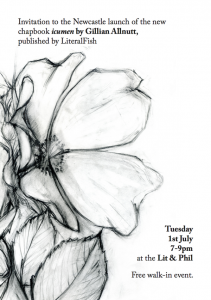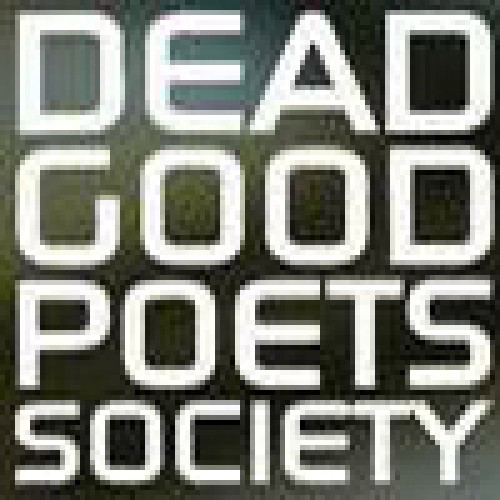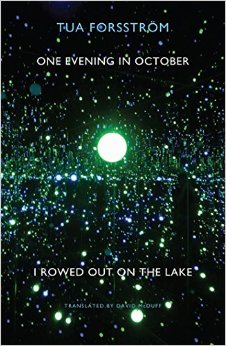Icumen by Gillian Allnutt
-Reviewed by James Mcloughlin–
Coming in the wake of a series of Bloodaxe Books, Gillian Allnutt’s debut Literal Fish chapbook picks up where she left off with indwelling (2013). Scrupulous and sparse, icumen embellishes wrought delivery with the finest branches of stark imagery.
This is a collection difficult to penetrate on first reading but which rewards further exploration. The poems deliberately veer off from straightforwardness, twisting and turning down cold avenues. ‘Jod, in tranquility’ is a tautly composed introduction, keeping the reader rapt with stilted stanzas that are a precursor to the reticence of poems to follow. It is hard to lose oneself in this isolation, “among brake and briar” but this is not down to authorial ineptitude. It is a defining characteristic that serves to make these poems stand out, unabashedly bleak and curt, but incorporating a sinewy spirituality that imposes itself upon the reader.
We witness this in subsequent poems. The majority of them (prime examples being ‘Ob’ and ‘Seven’) need to be read aloud to truly be discovered. On the page, they revel in silence and the spaces in between – as do many of the pieces here – but these are delightfully nuanced exercises in internal rhyme: “that her comb was a bone of sturgeon/that hers was a river of stone”. There is much more life to be extracted from these lines when they are given a voice, the vowels ebbing and flowing before coming to a sharp stop, a concept that strikes right through without becoming pastiche or losing its impact.
Formally prosaic, ‘Elias’ retains much of her poetic mysticism, not giving in to an easier mode of expression, but bristles with the tangible artefacts of nostalgia in a much more full-bodied way than other poems in this pamphlet. Some of her hallmarks can be found here: alliteration that becomes almost onomatopoeic, disconnected recollection, the fond description of artefacts from her past. They’re all here. It serves to draw the reader into her world and entwine us in the cluttered nostalgia that runs through this collection; “wrily, awry, I was walking according to my wont in the wild barley grass at the edge of my father’s field”.
Though this continues throughout icumen, the majority of these pieces are, at times, open as emotional explorations simply by virtue of their refined, simplistic reflection. These are dust-layered, observational pieces, and we can almost touch the past, such is Allnutt’s aptitude for laying a scene through a unique description of its props. Allnutt excels in this respect, revelling in the days-gone-by dormancy of ‘The House where Bewick was Born’, of
The cold brass candlestick, the windowsill.
The cobweb, cornered, still.
The spinning-wheel, its empty spool. The whole room idle.
There is a lingering sense of stillness through this and other poems here that manage to breathe nonetheless.
‘Near the Peace Garden’, reaffirms the more minimalist traits of the author while remaining accessible in its exploration of her history. However, an explanatory footnote from Allnutt seems oddly misplaced here, even if it does add gravitas to the poem. It’s not like her to go to lengths to clarify things for the reader; she instead delights in the less-than-definitive, the abstract lines whose symbols are ours to interpret and read between
Many of the poems are short but infinitesimal; once again there is more in what Allnutt suggests than what she actually lays out in verse. Perhaps the best lines are saved ’til the last: “sweet chariot, sweet clarinet, of bone/where late the sweet bird sang-”, a starkly beautiful caesura without the ending, typical of an author in no rush to conform to expectations or norms. It encompasses everything there is to enjoy in Allnutt’s writing: a mastery of internal rhyme and diction, incisive observation and a kind of brutal mystique that hovers, suspended, in this most personal of worlds.
One may at first leave icumen less than satisfied. It consistently refuses to offer a more straightforward inspection of life’s muses and, although it is carefully crafted, each spindly branch of a line deliberately composed, it can appear scattered. However, one must remember that poetry is not about the expected and easy. It is about expression, and Allnutt has a voice that is definitively hers. It is an identity carved through experimentation and a cast-iron ability to surprise. Whilst it is difficult to penetrate the meat and matter of these poems initially, they are without doubt verses to reflect upon and one cannot fail to recognise the skill of a quite fantastic poet. And what, if anything, is poetry for if it doesn’t reward us with something different, each time we return?






Many thanks for the brilliant review James, it’s the first for icumen (let’s hope there’ll be many more). The chapbook is launched in Newcastle upon Tyne on Tuesday 1 July after which it will be available to buy online from the Literal Fish website (www.literalfish.co.uk).